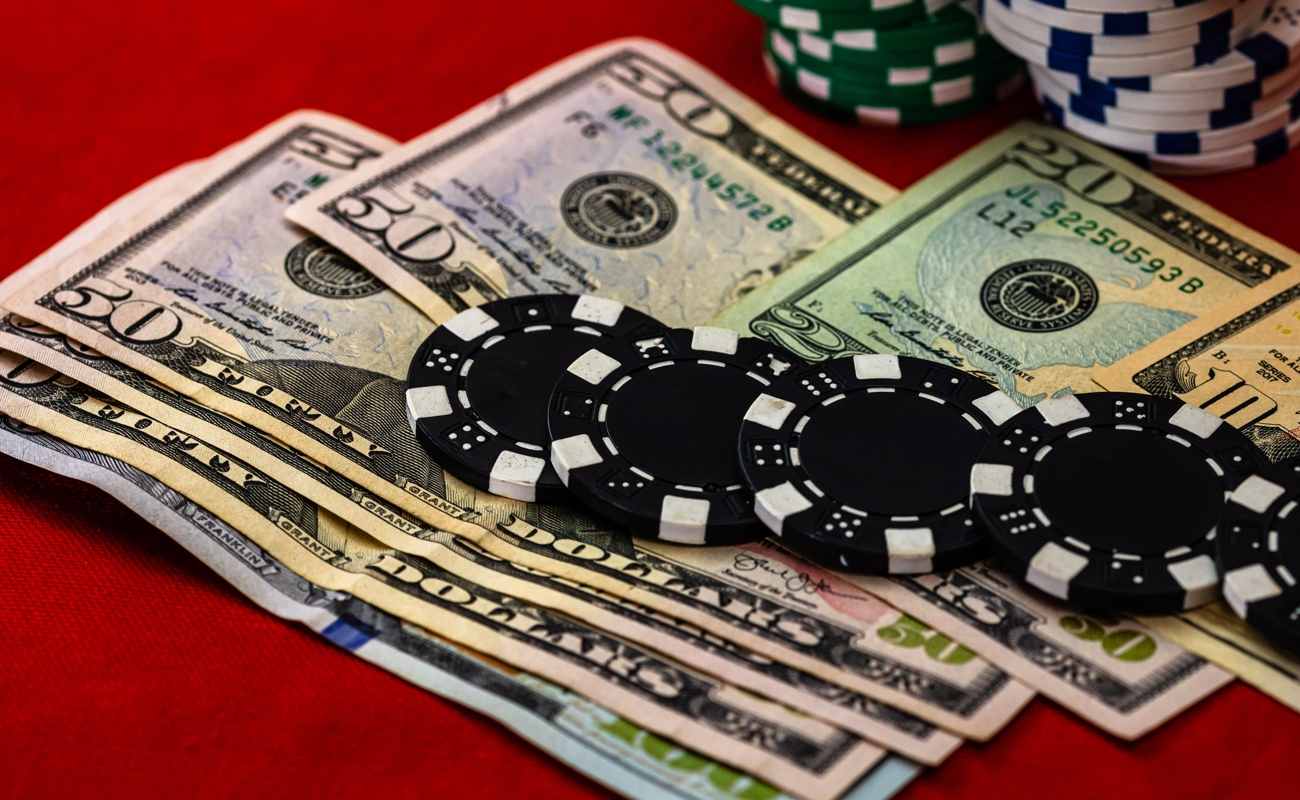
Playing poker is undoubtedly a fun and challenging way to pass the time, test your strategic thinking, and stand the chance to win some money with a little friendly competition, but it’s much more than that — it’s a lot like life. Real life and poker can be unpredictable and require a careful mix of hard work, skill, and luck to navigate successfully.
If you’re an experienced player who knows the ins and outs of the game like the back of your hand, you might have noticed how certain skills you use to play poker can extend beyond the gaming table and influence various aspects of your life. The more you play poker, whether at an online or land-based casino, the clearer the development of life skills from online poker games.
Here are a few of the skills you develop from playing poker that can have a tangible, positive impact on the way you approach your day-to-day life.
1. The Impact of Poker on Decision-Making
Poker is a game of both chance and skill. You need a well-thought-out strategy and a thorough understanding of the game if you want to stand a chance of winning, but you also need to adapt to your unique situation and strategize around the cards you’re dealt.
So, how can you use this poker skill in life? When you play poker, you can learn to make the best decisions with the cards you’re dealt, regardless of how weak or strong they are. You become more adaptable to change or surprising circumstances and learn to be more confident in your decisions.
It’s easy to fall into the trap of thinking, “If only I’d been born rich” or “If only I’d been more attractive,” but poker is a reminder that not everybody starts the game of life with a strong hand. As in the game of poker, one must always make the best decisions possible with the cards one is dealt — that’s what makes it possible to move one step closer to achieving success or happiness.
2. Poker and Emotional Control: Working Well Under Pressure
The personality of a poker player is often associated with things like being cool, calm, and collected — using your poker face to never let your opponents know what you’re thinking. However, poker players aren’t born with this kind of emotional control — they practice it.
Poker is an emotional rollercoaster, and there’s no doubt that it can be even more stressful if you’re playing poker and there’s money on the line. However, if you want to be a successful poker player, you’ll need to learn how to manage the pressure so that you don’t tilt, lose your cool, and make poor decisions at a crucial moment.
There are many ways you can learn to manage stress and improve your emotional resilience in a poker game. These steps for emotional control are equally applicable to other areas of your life. In fact, in addition to helping you on a personal level, learning to manage your emotions is also one of the poker skills that can be applied to your business life. The method is up to you — whether that’s ensuring you get a good night’s rest, practicing meditation and breathing exercises, or learning what causes you to get upset so you can avoid it.
3. Improve Your Financial Management Skills With Poker

Regardless of whether you’re a casual or competitive player, the best poker players all understand how important it is to manage their money in each individual game as well as in the long term. This is known as poker bankroll management.
In each individual game, poker players must decide whether to call, raise, or fold, with each choice resulting in the player’s bankroll changing in size, sometimes for the better, but sometimes for the worse. This skill is particularly important in both offline and online poker tournaments — when you don’t have the option to re-buy since you’re limited to a specific amount of poker chips and can’t just get more if you need to.
But even if you just like to play casual poker cash games, you still need to learn how to manage your spending. If you don’t, you may accidentally find yourself short of money for rent or groceries after a few games that didn’t end as well as you planned. So, the bankroll management skills you learn from playing poker can help you become better at budgeting and developing self-control where your spending is concerned.
4. Connecting Playing Poker and Risk Management Skills
Poker has an element of risk because you are playing with incomplete information for much of the game. You don’t know what cards you’ll be dealt at the beginning of the game or what cards your opponents are holding throughout the game. So, there is an element of risk to every decision you make. There’s also the fact that you don’t know what cards will be drawn from the deck, which could completely alter the course of the game. However, you still need to learn what choices to make, whether that’s folding, calling, or raising to move forward in the game. A successful poker player will learn how to make the best decisions based on the information they do (and don’t) have.
Life is similar in that you don’t know what will occur, either based on the “cards” other people have or other random things that occur during the day. Poker can help you learn how to make better decisions and take more calculated risks in life, even if you don’t have all of the information you thought you needed. It teaches you to look at what is in front of you and consider what you do know to manage the risks involved and make the best decision possible in that moment.
5. Improving Your People Skills and Empathy With Poker
A big part of playing poker is reading people, which is why playing this game can help you improve your empathy and understanding of other people. This skill is mostly applicable to those who play poker in person, as you are given the opportunity to study your opponent face-to-face and can better gauge how they react to events that take place during a game.
Whether you’re looking for tells (body language habits, such as a player who fiddles with their poker chips when they are nervous, who scratches their face when they have a strong hand) or how your opponents tend to bet, being observant can teach you a lot about others and give you vital information on how you should engage with them.
You’ll be more capable of determining whether someone is being upfront about their feelings or intentions by picking up on subtle cues in body language, facial expressions, or even changes in the way someone speaks. This can be extremely beneficial for your personal relationships, helping you connect better with the people around you, realize when someone you care about needs support, and understand what someone is feeling even if they don’t always say something about it.
6. You Can Learn How To Improve Your Focus by Playing Poker

You’re not going to get very far in poker if you can’t focus. Imagine trying to win a poker tournament when you’re distracted by the spectators around you or even shifting your attention to the TV your friend left on during a friendly game of poker at home. You’ll likely miss vital information affecting your decision-making and the game’s outcome. This is why focus is important. Every piece of information could help you move towards a more successful result.
Taking advantage of different ways to increase your focus, whether it’s by meditating, using specific kinds of music, or taking regular breaks to stay mentally sharp, can help you increase your wins in poker and can be easily transferred to other areas of your life.
7. Using Poker Skills To Become More Independent
In an interview with Wired.com, Maria Konnikova, a writer who became a professional poker player, shares how “in poker, you can win with the worst hand; you can lose with the best.” This resonates strongly with a quote from Star Trek: The Next Generation, when Captain Picard states, “It is possible to commit no mistakes and still lose. That is not a weakness. That is life.” Both of these quotes allude to the simple fact that in poker (and in life), even when you make the best decisions, things may still not turn out the way you planned.
This idea is also known as “outcome independence” — a state of mind or skill that can be learned by playing poker. Whether it’s learning to accept failure and rejection, learning to understand that failure is a part of growth, or learning to accept that there is an uncontrollable randomness to life, detaching from the outcome is vital to long-term success in poker and in your life.
Enjoy Thrilling Online Poker and More at Borgata Online
Now that you’ve learned how various poker skills can help you improve your life, it’s time to have some fun playing real online poker. At Borgata Online, you can join in exciting online poker cash games and thrilling online poker tournaments. And if you feel like mixing things up a bit, you can also try other gambling games like blackjack, roulette, slots and more.
Register at Borgata Online to experience all the world of online gambling has to offer.
